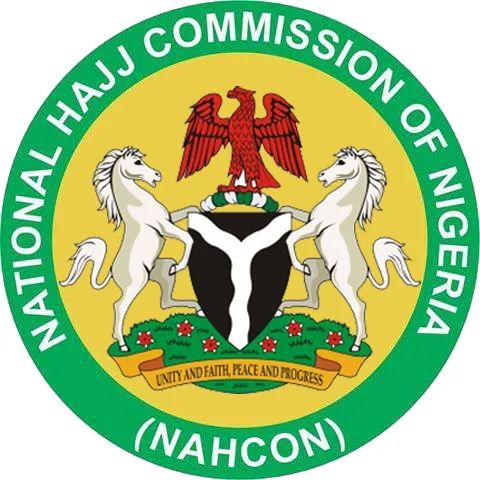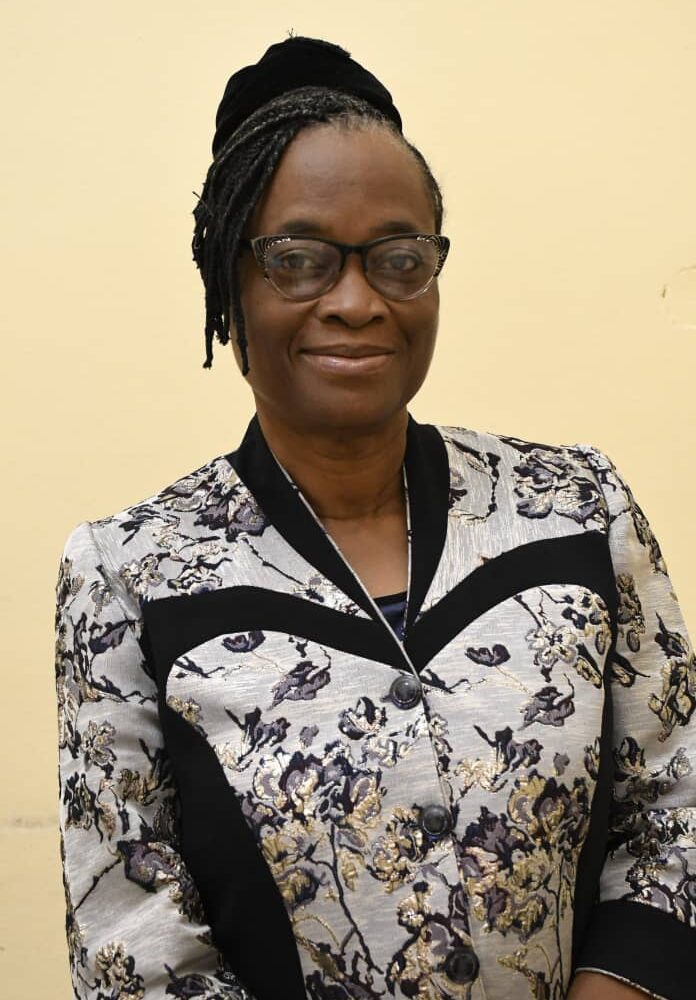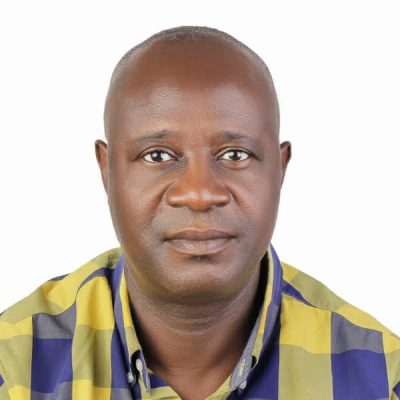1. BACKGROUND INFORMATION.
Hajj Operation in Nigeria is undoubtedly a chequered history. It was around the late of the 20th century, precisely in 1958 that the late Sardauna of Sokoto began to agitate on how to make the arrangement of Hajj in at least an organized way and the involvement of Government in its activities.
Mallam Abdulkareem Buba, in his book titled “Letter to Intending Pilgrims; A retreat on Hajj Operation Philosophy and Practice” attempted to provide some insights of the historical background of Hajj Operation in Nigeria. According to the historical book since that time, for many years, the arrangement of Hajj was left in the hands of private individuals with little interference of Government. Later on it was grossly abused for lack of Government absolute control and regulations. The situation warranted the establishment of a Pilgrims Welfare Department, directly under the Ministry of Foreign Affairs.
In 1950s and 60s, when the impact of modern means of transportation was being felt, the organization of Hajj was still in the hands of these private Agencies with Government providing only Consular Services to the intending pilgrims.
The era of Private Agencies undoubtedly witnessed a tremendous growth in the number of pilgrims visiting the Holy land but it was also not without its problems. While many private Agencies discharged their responsibilities creditably, quite a substantial number performed woefully and dishonourably, concentrating on expanding their profit margins than investing in the welfare of their pilgrims in the Holy land. The activities became rampant for allowing many Nigerian Pilgrims to permanently and illegally continued to stay in the Kingdom. Indeed, a diplomatic row between the Saudi Authorities and the Nigerian Government was witnessed at that material time in history.
• Thus, when in 1975 the Military Government promulgated the Nigeria Pilgrims decree No. 16 of May 1975, vesting all aspects of Hajj Management in the Nigeria Pilgrims Board, headed by late Sheikh Mahmud Gumi of blessed memory, it was a welcome relief, signaling Government determination to safeguard the interest and welfare of its citizens and to protect the Nation’s honour and integrity in the comity of other nations.
• The promise of Decree No. 16 of 1975 took some time to realize. Despite some commendable achievements of the Board, the old scourge began to rear its ugly head bedeviled by poor planning, sub- standard accommodation, neglect of the general welfare of the pilgrims and worst of all, botched Hajj airlift operations.
The Nigeria Pilgrims Commission established Decree No.16 of 1989 came into being, then Pilgrims Commission Act, cap 321 law of the federation of Nigeria, 1990, ushered in also with some other set of promises and opportunities.
However, the Nigerian Pilgrims Commission survived for a decade but was disbanded thereafter. It was succeeded by a variety of ad hoc arrangements coordinated initially from the Ministry of Foreign Affairs and later by the presidency. But all the Task-forces or Committees, whether Ministerial, or Extra-Ministerial (Presidency), the Directorate of Pilgrims Affairs, (DPA),, or Office of The Pilgrims Affairs (OPA), the Technical Committee on Hajj (TCH), or the National Committee on Hajj (NCH), all had made frantic efforts to move to the next level but at last succumbed to the unending challenges of Hajj arrangements. For about three decades, the same questions about proper arrangements for smooth and hitch- free Hajj remained unanswered. Until the last straw that broke the camel’s back in 2005 Hajj operations, when over 11,000 intending pilgrims who paid their Hajj fares but were not able to perform the Hajj due to the inability of Hajj authorities to airlift them to the Holy land.
The situation attracted national hues and cries particularly from the concerned Nigerian muslims. The outcry drew the attention of the Government of President Obasanjo that took decisive action to salvage the situation and streamlined the Hajj operation for more effective service delivery to the pilgrims.
Before the establishment of the Commission in 2005, there were some remarkable teething challenges that remained insurmountable for decades:
These challenges are:
• The pilgrims staying in Saudi longer than necessary up to 60 days before Hajj Operation is concluded.
• Necessity of seeking loan from Federal Government to pay service providers for late payments of Hajj fares by the pilgrims.
• Seeking extension date to Airlift pilgrims.
• General indiscipline and disorderliness of pilgrims in places such as the departure centres, weighing centres, food distribution centres etc.
• Intending pilgrims were left behind after payment of their Hajj fares.
• Pilgrims staying longer time at departure centres before Airlift.
• Pilgrims embarking on demonstrations for rendering poor services to them.
In 2006, the Federal Government set up a Presidential Committee on Hajj, headed by Malam Musa Muhammad Bello and the following year, the Committee metamorphosed into a full fledged Commission through the Act of parliament.
The Commission continued to be led by the same Malam Musa Muhammad Bello as its pioneer Executive Chairman.
2. THE JOURNEY SO FAR.
In the past seventeen years, when the Commission came into being, it witnessed four leaderships and each tried its best to move the Hajj Operation to the next level of development.
The following are the achievements made by the tenure of each of the four Chairmen Chief Executive Officers of the Commission.
i. MALAM MUHAMMAD MUSA BELLO 2006-2015.
Malam Muhammad Musa Bello is a 1981 graduate of economics from ABU Zaria. He started his career as a Banker with JP Morgan, where he worked shortly before joining a family company as its Managing Director. Because of his honesty, self disciplined and prudence in managing resources, these sterling qualities earned him recognition by the Government and was called to head the Presidential Committee on Hajj in 2006 after the operation failure of not Airlifting many pilgrims who paid their Hajj fares and eventually was confirmed as the substantive Chairman/CEO of the then newly established Hajj Commission and completed two terms in office, coupled with the one year Presidential Committee and spent nine years of meritorcous service in the Commission as the head.
Immediately on his appointment, Musa Bello critically studied the situation on ground and started taken effective measures to tackle the challenges earlier identified.
Some of the obvious achievements of the tenure of Muhammad Musa Bello of the first board of the Commission are:
• Throughout the nine years, the Commission has rarely (perhaps once) sought loan to Federal Government to pay service providers.
• The Commission has never requested for extension date to Airlift its pilgrims to Saudi Arabia.
• The Commission has never left any intending pilgrims behind.
• The delays and uncertainties of in bound and out bound flights from Nigeria and Saudi Arabia drastically reduced.
• The number of days pilgrims stay at Saudi also considerably reduced from 60 days to about 45 to 35 days.
• The direct landing of Nigerian pilgrims to Madinah started.
ii. BARR. ABDULLAHI MUKHTAR 2015-2019.
Barr. Abdullahi Mukhtar took over in 2015 from the pioneer Chairman after serving as a Commissioner on the second Board from 2015-2019, he instituted some good Hajj Operation innovations that positively impacted and enhanced the operation. When he was the Commissioner Operation in the Commission, he spearheaded the idea of direct Madinah landing of pilgrims. This single act brought succor to the pilgrims who used to undertake the tedious journey for about 500km distance to Madinah.
Barr. Abdullahi out of his initiative for Hajj improvement, found a way of hiring the pilgrims’ accommodation in Madinah for a whole Hajj period instead of the traditional way of utilizing the accommodation as the pilgrims arrive. This initiative also avail the Nigerian pilgrims of the accommodation within the posh area of Madinah other wise known as the Markaziyyah and boasted the internally generated revenue of the Commission.
The Madinah Nigerian accommodation became adjacent to the Grand Mosque of the prophet’s Mosque. Till to date those accommodation are still maintained for Nigerian pilgrims.
The tenure of Barr. Abdullahi also witnessed the full implementation of the movement of the NAHCON’S operational base from Jeddah to Makkah. Consequently, a befitting office was secured in Makkah which the Commission is currently occupying.
His tenure also witnessed the securing of a permanent office accommodation in the Central Business Area of Abuja, which is an edifice in itself.
Barr. Abdullahi jerked up the NAHCON’S staff strength from about 120 to 415 to boast the manpower needs of the Commission.
This single action of the former Chairman tremendously improved the lives of so many youths, that are now gainfully employed.
He consolidated and sustained all the achievements of his immediate predecessor.
Because of his quest to achieve Hajj Operation professionalism, he championed the establishment of Hajj Institute of Nigeria to the point of final take off and which eventually took off during the tenure of the forth board and is now in full swing.
Similarly, Hajj Savings Scheme is an old baby of the Commission which did not receive the required attention it deserves. It was during his tenure that the policy was vigorously revisited and nurtured to its logical conclusion.
iii. ALHAJI ZIKRULLAH OLAKUNLE HASSAN 2020-2023.
Alhaji Zikrullah Kunle Hassan came as the Chairman Chief Executive Officer of NAHCON on the 14th February 2020 after the Senate confirmation and inauguration by the Secretary to the Government of the Federation whose the Commission’s supervision was under him.
Immediately on assumption of office with his team, they did not waste time in trying to consolidate the achievements they met on ground.
The Saudi policy on computerization of Hajj Operation was actualized during his tenure. The Commission collaborated with the NITDA and established Digital Economy Centre (DEC) in the NAHCON’S Headquarter which is to date functional.
The Hajj 2020 preparation was in top gear when the Corona Virus scourge surfaced which lasted for two consecutive Hajj Operations (2020 and 2021). The regime successfully executed 2022 and 2023 Hajj Operations. One unique achievement by the regime is the Hajj 2023, which airlifted 95,000 pilgrims within 30 days. The achievement is unprecedented as there was no such a record throughout the history of the performance of Hajj in Nigeria.
Zikrullah’s tenure consolidated the achievements of Barr. Abdullahi Muktar for the full utilization of the development levy projects across the Country. Towards this direction, PPP Committee was specially set up to collaborate with Infrastructure Concession Regulatory Commission (ICRC) To ensure optimal utilization of the projects to boast the IGR of the Commission.
The tenure vigorously pursued the two pet projects of the Commission, the Hajj Savings Scheme and the establishment of Hajj Institute of Nigeria and made sure their full implementation which was also accomplished.
During the tenure, the leadership was magnanimous enough to improve the Staff welfare greatly. Actually, a friendly atmosphere was created in the office.
The close monitoring of the operational activities was intensified particularly the pilgrims’ Airlift which could explain why in 2023, 95,000 pilgrims were airlifted within only 30 days period.
vi. MALAM JALAL AHMAD ARABI 2023 to date.
Malam Jalal Ahmad Arabi is the current Chairman/CEO of the fifth Board of the Commission. His appointment came barely five months ago. The Board members were recently confirmed by the Senate and inaugurated by the Vice President of Federal Republic of Nigeria, Alhaji Kashim Shetima, whose office is now in charge of the supervision of the Commission.
The new Chairman is a lawyer and a seasoned technocrat who built his career in the core Civil Service and attained the peak of the career and retired as a Federal Permanent Secretary.
Immediately on assumption to duty as the Acting Chairman of the Commission, he critically studied the situation of Hajj Operation and instituted transitional EXCO Members among the Directors of the Commission to bridge the vacuum created from the absence of the Fourth EXCO that was dissolved in October 2023.
Malam Ahmad Jalal Arabi came with thirst to improve Hajj Operation generally. Although, he came when the Commission was grappling with ever increasing rate of Dollar to Naira which made it very difficult to even take decision on Hajj fare.
Out of the frantic effort, he was able to arrive at a fare that baffled most Nigerian Muslims as the expected fare was as much as 7 to 8 millions Naira. Arabi was able to achieve this milestone score card from his rigorous and vigorous intense direct negotiations with the all Hajj Service Providers.
People are still wondering about the Hajj fare at the rate of 4.8 or 4.9 million when Dollar is fluctuating as higher as 1.970 to a Naira.
Alhamdulillah, the fervent prayers by Nigerians are already bringing the Dollar down to 1,600 to Naira as at today, this encouraging trend is actually given the Chairman a ray of hope to actualize his earlier announcement of Hajj fare. May Dollar continue to fall against the Naira in the next few days to the extent that the Dollar rate can conform with announced fare.
The Chairman out of his insatiable quest for improving the situation of Hajj and within the first five months of his assumption of office, was able to realize an unprecedented achievement of moving some Nigerian tents in Muna from the tail end of Zone D to a little further near the borderline of Zone C of Muna end boundary.
Throughout the modern performance of Hajj Operation from the 70s, Nigerian pilgrims have been staying at the tail end of Muna boundry, infact some Nigerian tents used to be outside Muna demarcation. Alhamdulillah, this Hajj 2024 will witness a slight shift of some Nigerian tents from their long time traditional place.
During the short stay of the current Chairman, he greatly improved the relations with stakeholders, the State Pilgrims Welfare Boards and the Tour Operators are being carried along in all decisions as they affect them to ensure harmony and sense of belonging among the stakeholders.
In view of this transformation from 2006 to date, the situation of Hajj affairs in the country has moved to the next level of a giant stride. In the past, Hajj Operators were looking on how to tackle the airlifting of the pilgrims within a time frame, how to change the trend of delay in Hajj fares payment, how to ensure that no pilgrim was left behind, how to tackle demonstrations by the Nigerian pilgrims in the Kingdom and so on.
Now all these challenges seldomly occur. What remains is for the Hajj Operators to consolidate and sustain these achievements with the desire to improve for more enhanced Hajj Operation that can match the international best practice.





